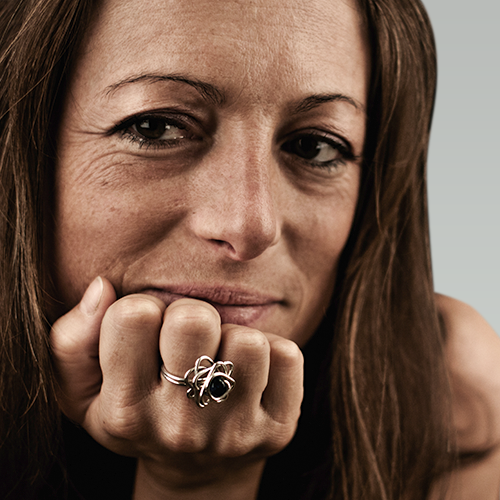do we know how to recognize the signals of our body?
During my job I am often asked to provide a detailed menu with food items and above all with exact dosage for every day. This particularly the case when speaking with athletes but more and more often this request is also made by those who are not athletes.
Unfortunately, after years of reading diets in magazines, or hearing about diets from friends or finding them on the internet, many think it is necessary to eat a certain amount of food, based on their calorie content.
Everyone has its own needs
Let it be clear: you should expect a professional consultant to explain the impact of food on health and fitness and help you make the right choices, terms of quality of the food, preparation and distribution of meals.
This, however, does not mean that your nutrition consultant (or even more so an internet site!) can replace your particular characteristics with a list of foods and weights based merely on a series of "cold" calculations. We all have our own taste and rhythms; moreover the energetic and nutritional needs can vary according to our activities, health condition and various other variables.
Based on this, you can expect that a body-builder of 120 kg not only should eat different amounts and proportions than, say, his 50 kg cyclist girlfriend, but also that, depending on whether he is preparing a competition or is on a vacation or still recovering from the flu, he must change his diet accordingly.
The hunger center
Nevertheless, I often meet people who, when they start a diet, eat the same food and the same quantities for weeks, regardless of their circumstance and only because they have been prescribed this menu by the nutrition consultant.
Such an approach tries to meet the needs of clients who are confused and in need of being instructed in a clear way ("Tell me what to do, doctor!"), but it risks not using an available instrument - for free! – provided by our bodies, namely our appetite. Our hunger center, which is "turned on" or "off" by our central nervous system, responds to certain signals and tell us when we should recharge our batteries and when we are already "fully charged".
Knowing how to recognize signals of our body
It is therefore necessary to distinguish between "true" and "false" signals; the latter, in fact, makes our hypothalamus, the main regulator of our metabolism, believe that we need to eat even though we have already filled ourselves up with energy ... or vice versa! As such we enter a spiral where we no longer understand why, for example, we don’t want breakfast as soon as we wake up but instead can eat a whole tray of pastries mid-morning, or after dinner.
Eating when hungry teaches us exactly this and allows us to follow the only true and reliable indicator of our nutritional needs: our sense of hunger. A first step is certainly the elimination of all junk food and the so-called "endocrine disruptors": refined sugars and flours, preservatives, emulsifiers and other additives, which alter the taste and consistency of food and destabilize the balance between hunger and satiety. After this you must turn your attention to the composition of your meals and their distribution throughout the day. But we'll talk about this next time.
For the moment, I leave you with a thought: it would be good to start listening to the person who knows you best: you.
To be continued...
Individualized greeting from your nutrition consultant,
Tatiana Gaudimonte

Tatiana Gaudimonte
You might also be interested in


